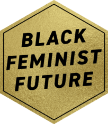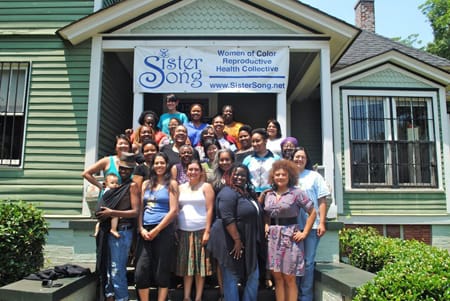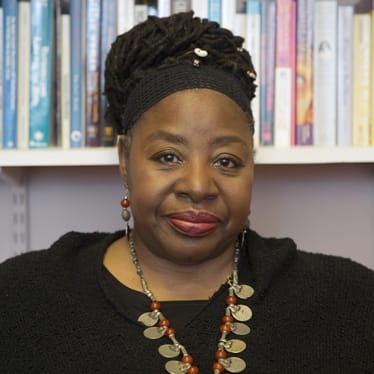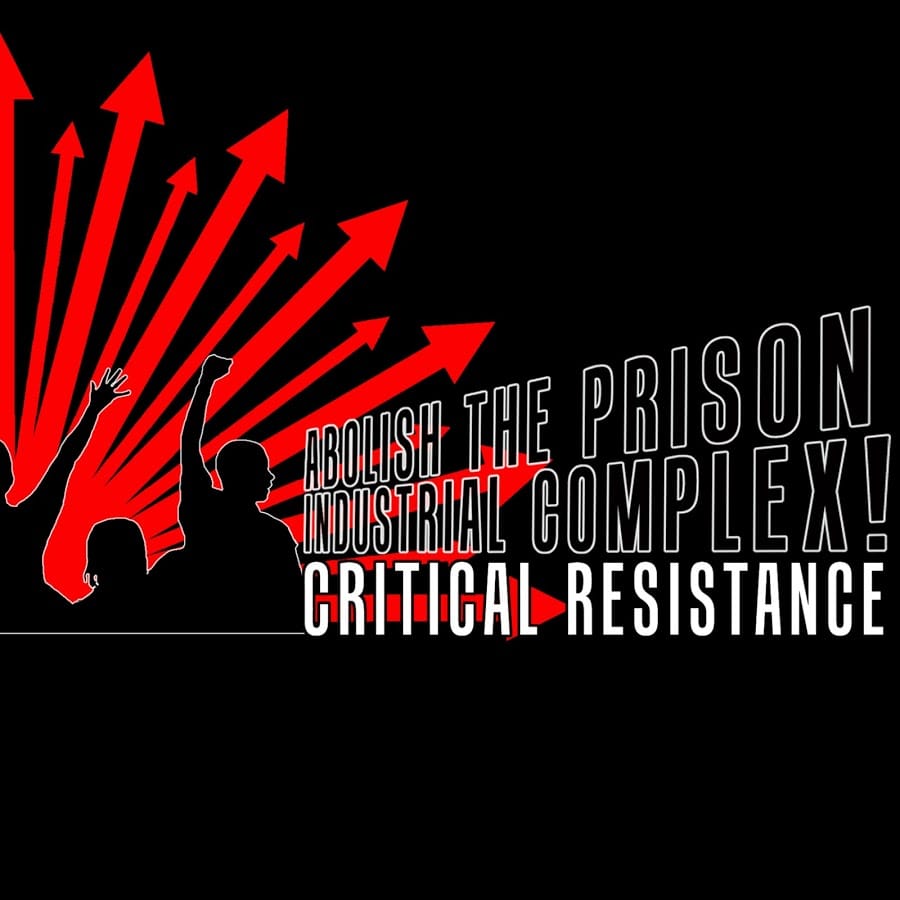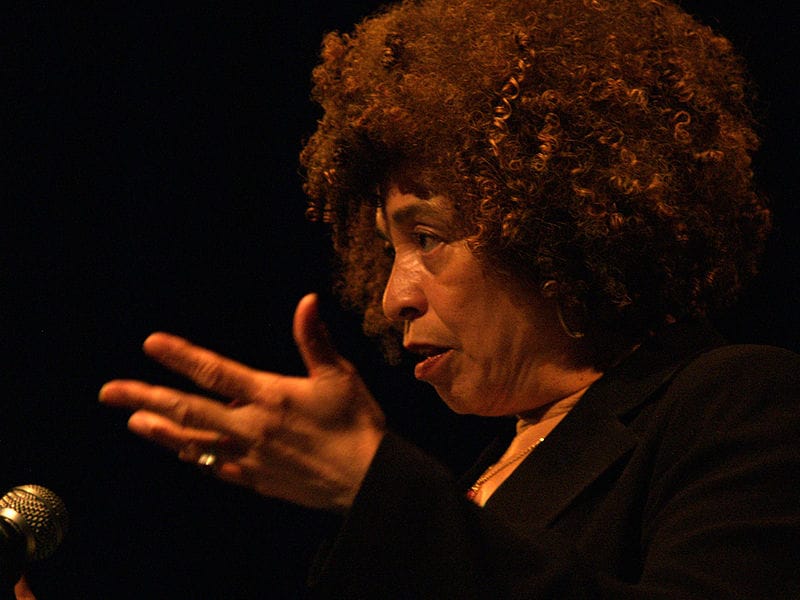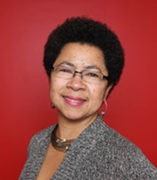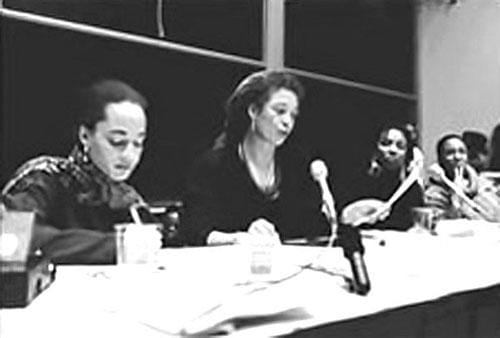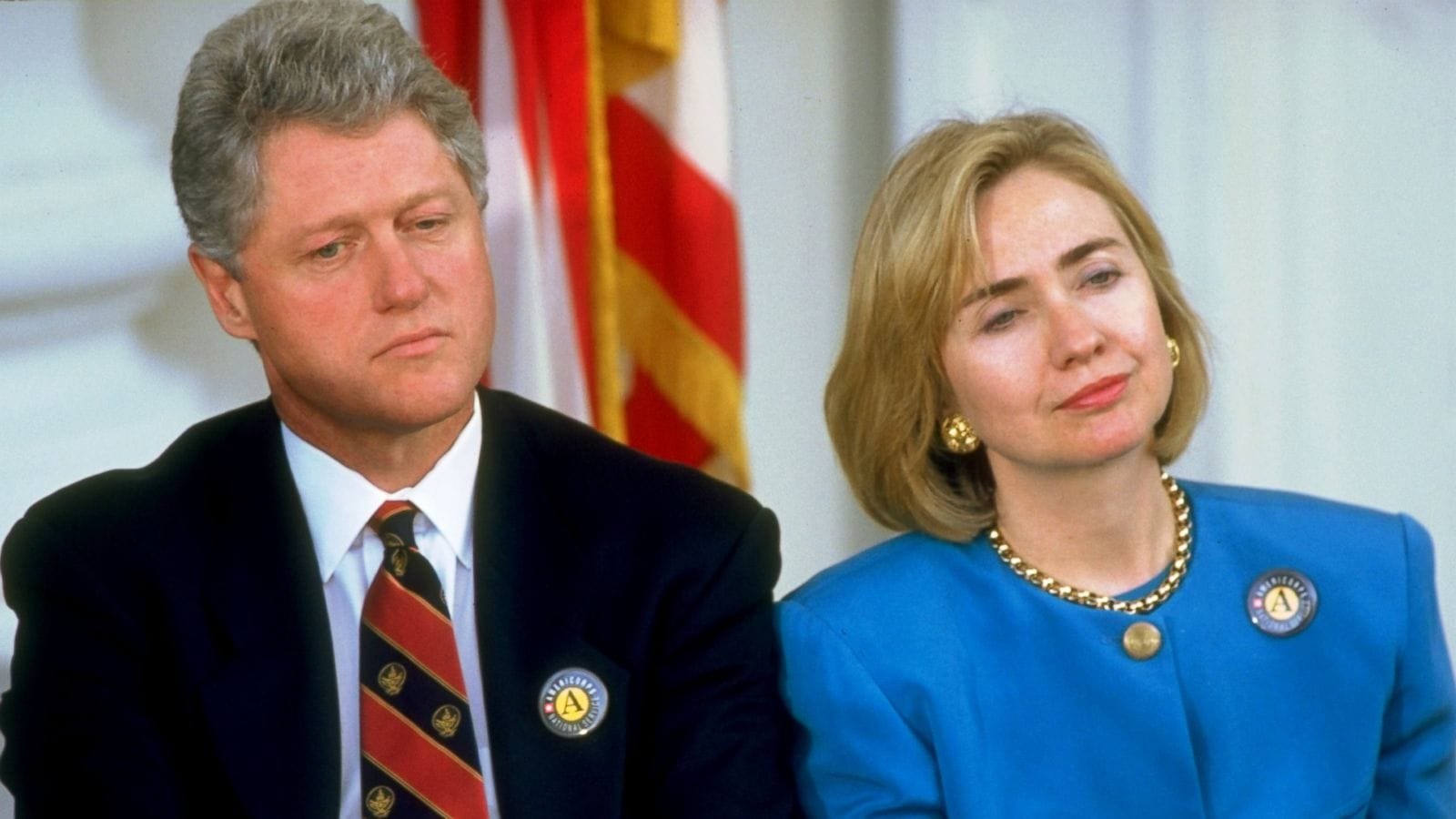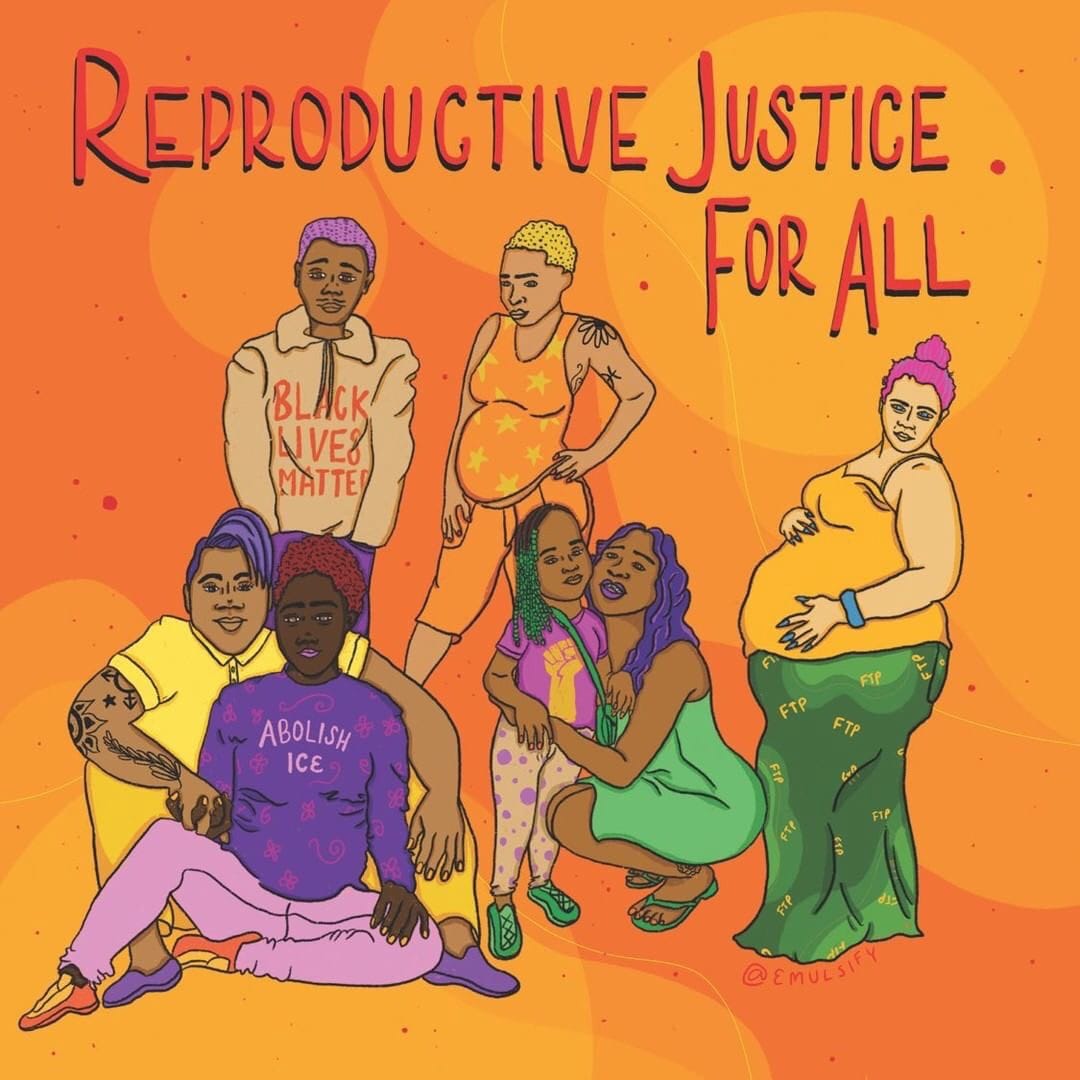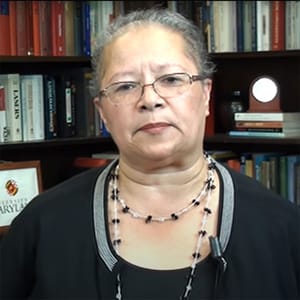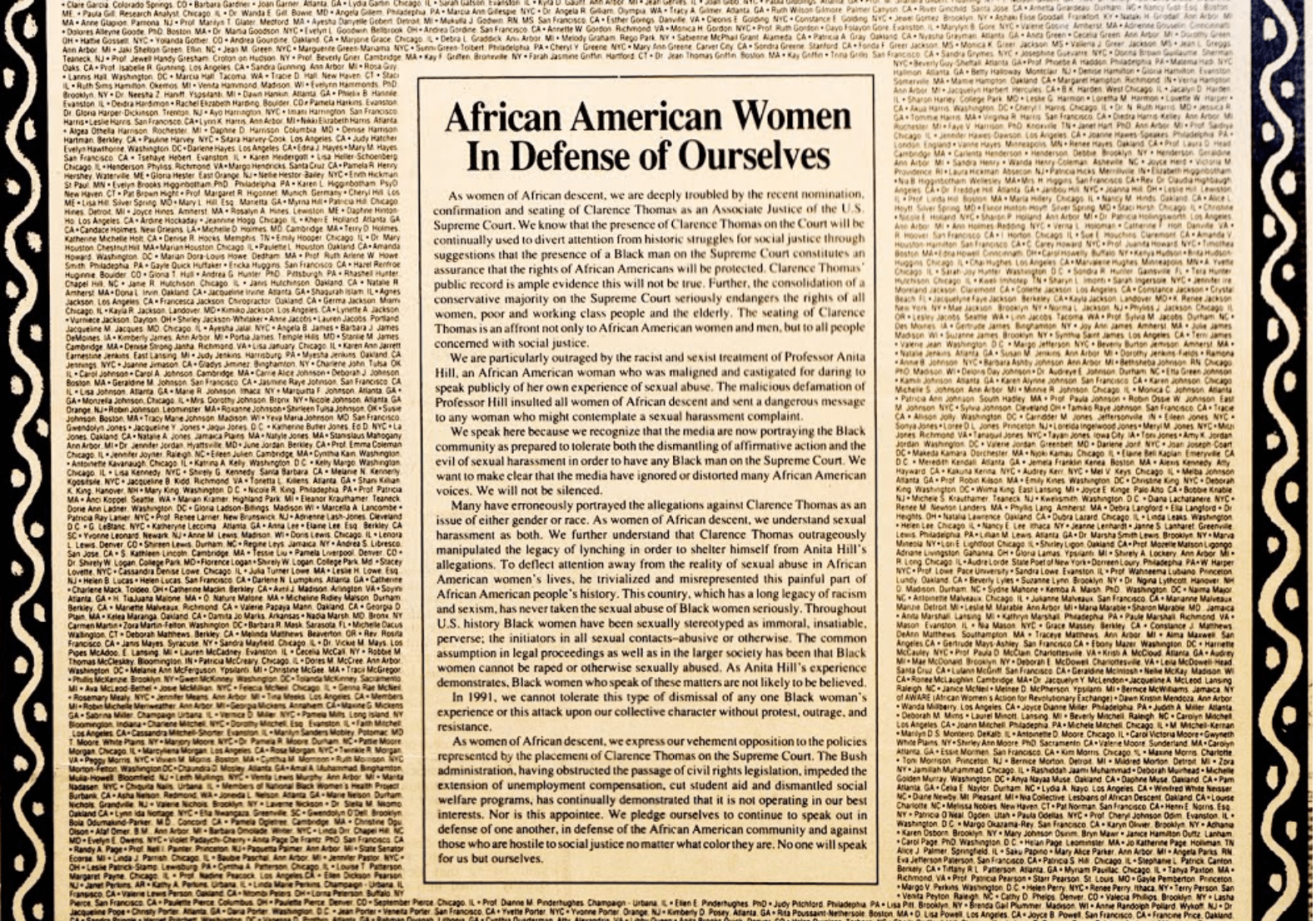SisterSong Women of Color Reproductive Justice Collective was formed in 1997 by 16 organizations of women of color from four mini-communities (Native American, African American, Latina, and Asian American) who recognized that we have the right and responsibility to represent ourselves and our communities, and the equally compelling need to advance the perspectives and needs of women of color. SisterSong is a Southern-based national membership organization; [their] purpose is to build an effective network of individuals and organizations to improve institutional policies and systems that impact the reproductive lives of marginalized communities.
Author: developer
Women of Color
Women of color is a phrase coined by a group of Black women activists at the National Women’s Conference in 1977. Loretta Ross states that the term does not relate to “biological destiny” but instead is a political designation that communicates solidarity between non-white women.
Critical Resistance
Critical Resistance was formed in 1997 when activists challenging the idea that imprisonment and policing are a solution for social, political, and economic problems came together to organize a conference that examined and challenged what we have come to call the prison industrial complex (PIC). Held in Berkeley, California, in September 1998, the conference brought together over 3,500 activists; academics; former and current prisoners; labor leaders; religious organizations; feminists; gay, lesbian, and transgender activists; youth; families; and policymakers from literally every state and other countries. The three-day event featured nearly 200 different panels and workshops. The conference also included a number of cultural events and a film festival. While the conference was a huge success, Critical Resistance recognized that its work had only begun. The goal of Critical Resistance was, and continues to be, building a movement to eliminate the prison industrial complex.
African American Agenda 2000
Angela Davis and several Black feminists opposed the 1995 Million Man March, as it excluded women and reinforced male chauvinism. Davis, alongside Black feminists like Kimberlé Crenshaw, Barbara Ransby, and Evelynn Hammonds, went on to form the African American Agenda 2000 — an alliance to oppose the march.
Barbara Ransby
Barbara Ransby is a historian, writer, and longtime political activist. Ransby has published dozens of articles and essays in popular and scholarly venues. She is most notably the author of an award-winning biography of civil-rights activist Ella Baker, Ella Baker and the Black Freedom Movement: A Radical Democratic Vision (University of North Carolina, 2003), which won no less than six major awards. Additionally, in 1995, Barbara Ransby helped found African American Agenda 2000 alongside leaders such as Angela Davis, Evelynn Hammonds, and Kimberlé Crenshaw.
Black Women in the Academy: Defending Our Name Conference
Black Women in the Academy: Defending our Name, 1894–1994, was a national conference to discuss the experiences of Black women in academia. The conference took place between January 13-15, 1994, at the Massachusetts Institute of Technology (MIT) and was attended by more than 2,000 people.
1994 Crime Bill
The Violent Crime Control and Law Enforcement Act, also known as the 1994 Crime Bill, resulted in tougher prison sentences and increased funds for states to build more prisons. The bill aimed to fund 100,000 more police officers and encouraged police officers to carry out more drug-related arrests. The 1994 Crime Bill was spearheaded by Joe Biden, who oversaw the Senate Judiciary Committee.
Reproductive Justice
In 1994, a group of women, who would come to be called the Women of African Descent for Reproductive Justice, gathered in Chicago with the shared understanding that the women’s rights movement was not representative of the needs of women of color, trans people, and people of other marginalized identities. The movement was sparked when the leaders of the organization published a statement with 800+ signatures in The Washington Post and Roll Call. Later, n 1997, SisterSong Women of Color Reproductive Justice Collective was formed to create a national, multi-ethnic reproductive-justice movement.
Elsa Barkley Brown
Elsa Barkley Brown is an author and associate professor in the Harriet Tubman Department of Women, Gender, and Sexuality Studies at the University of Maryland. Her primary interests are in African American political culture, with an emphasis on gender. Professor Barkley Brown is co-editor of the two-volume Major Problems in African-American History (Houghton Mifflin, 2000) and the two-volume Black Women in America: An Historical Encyclopedia (Carlson Publishing, 1993).
African American Women in Defense of Ourselves (AAWIDOO)
On November 17, 1991, Elsa Barkley Brown, Debra King, and Barbara Ransby organized 1,600 Black women to take out an advertisement in the New York Times and seven Black newspapers. In this advertisement, they voiced their opposition to Clarence Thomas’s seat on the U.S. Supreme Court and spoke out against the mistreatment of Anita Hill. The advertisement, which emphasizes that all that Black women have is each other, includes the 1,600 names of the Black women who pledged to continue to speak out against injustice.
